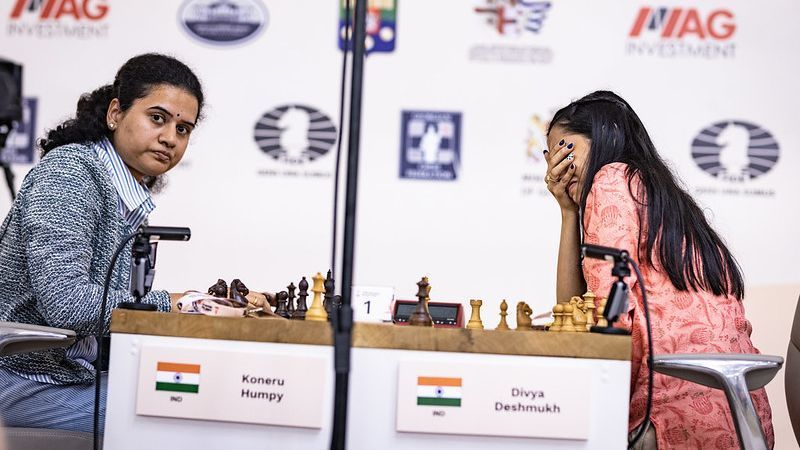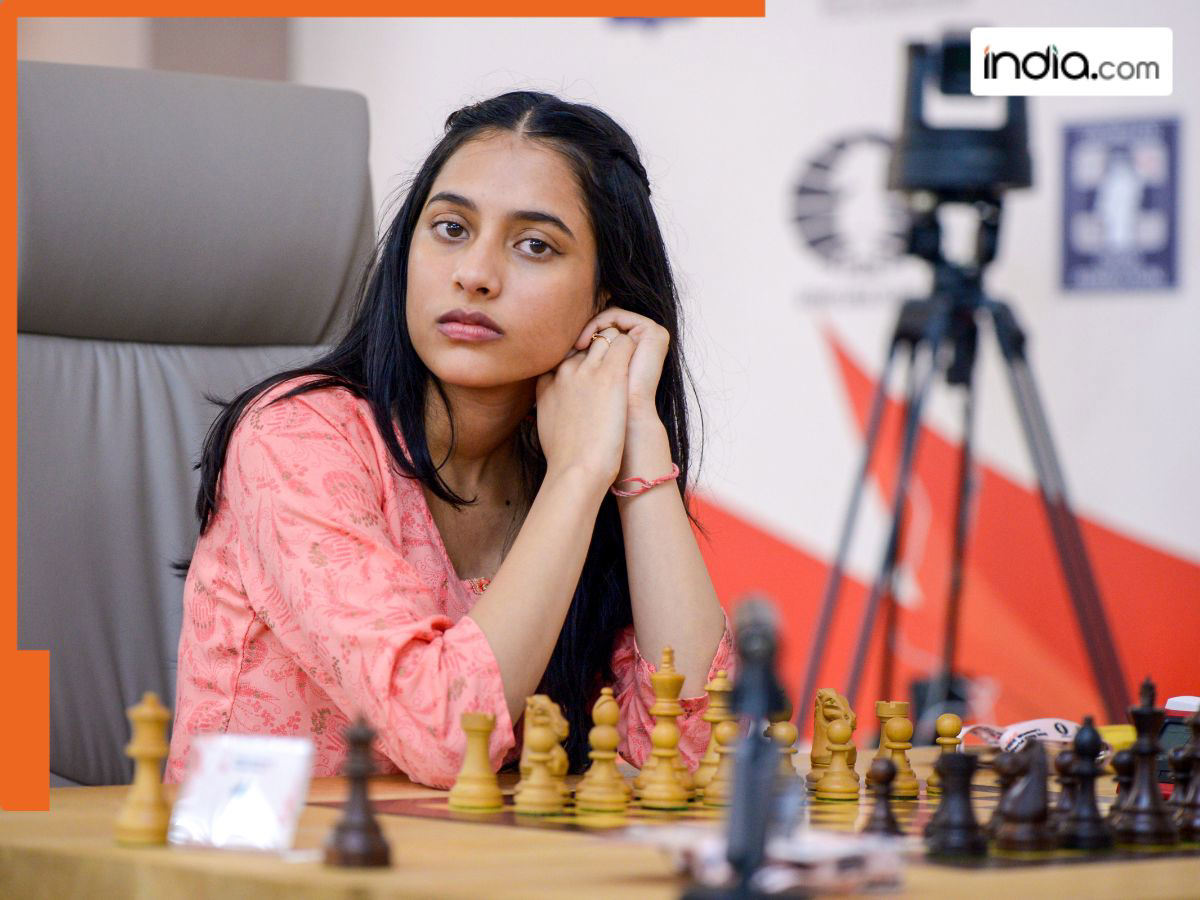The chessboard in India is abuzz, not merely with the clatter of pieces, but with the resounding echo of success. In a year already marked by significant triumphs for Indian chess – including gold medals in both Open and Women`s Olympiads, and world champions in various formats – a new star has ascended, illuminating the global stage with her remarkable talent. Divya Deshmukh, a name now synonymous with exceptional prowess and unwavering determination, has captured the 2025 Women`s Chess World Cup crown. This victory is not just a personal milestone; it is a profound testament to the burgeoning strength of Indian chess and a signal of formidable things to come.
A Journey Beyond Expectations
For many rising athletes, the path to glory is often meticulously planned, a series of calculated steps towards a predetermined summit. For Divya Deshmukh, however, her World Cup triumph seems to have been an unexpected, yet undeniably welcome, detour from her initial roadmap for 2025. Only months prior, when discussing her aspirations, her focus was refreshingly pragmatic: “I want to play in a lot of tournaments and improve my rating,” she had stated. A modest ambition, perhaps, for a player who would soon stand atop a global podium. This classic tale of underestimated potential, though certainly not of underperformance, underscores the sheer magnitude of her achievement.
Divya was, by no means, an unknown entity. Her involvement in two previous Olympiad teams, including a stellar performance in the 2024 Olympiad where she secured a board gold with 9.5 out of 11 points – an experience she fondly recalled as “the best time of my life” – had already marked her as a formidable talent. Yet, the leap from a promising prospect to a World Cup champion is a chasm few can bridge, and even fewer with such swift, decisive strokes.
Navigating a Nightmare Draw
The FIDE Women`s Chess World Cup is designed to challenge, to push even the most seasoned Grandmasters to their limits. For Divya, seeded 15th, her draw was, by all accounts, a veritable gauntlet. Her path was populated by some of the sport’s most formidable intellects: second seed Zhu Jiner in the fourth round, her experienced compatriot Harika in the quarterfinals, the formidable World Championship runner-up Tan Zhongyi in the semifinals, and finally, the legendary Koneru Humpy in the grand finale. It was a lineup that could induce trepidation in any player, a true test of nerve and skill. As one might observe with a wry smile, why face one titan when you can simply conquer a succession of them?
But Divya met each challenge with unwavering composure. Her victory over Zhu Jiner in tie-breaks was a crucial confidence booster. She navigated her quarterfinal against Harika, another Indian stalwart, with strategic precision, again prevailing in tie-breaks. The semifinal against Tan Zhongyi proved to be a turning point; a roller-coaster second classical game culminated in a win, eliminating the need for tie-breaks. This victory carried a significant statistical resonance, mirroring the paths of previous World Cup champions Alexandra Kosteniuk and Aleksandra Goryachkina, who also defeated Zhongyi en route to their titles.
The final against Koneru Humpy, a celebrated figure in Indian chess, was a tense affair. Despite having several promising positions in both classical and rapid games, Divya remained persistent. Eventually, a critical inaccuracy from Humpy provided the decisive opening, which Divya seized to claim the coveted title. While some celebratory messages erroneously crowned her “world champion” (a title currently held by Ju Wenjun), the Women`s Chess World Cup is an achievement of immense prestige, a clear indicator of a player at the pinnacle of their game.

Divya Deshmukh reacting to her monumental victory over Koneru Humpy in the Women`s Chess World Cup final.
A Grandmaster by Right
Perhaps one of the most remarkable outcomes of Divya`s World Cup victory is the immediate conferral of the Grandmaster (GM) title. Before the tournament, she had yet to secure even a single GM norm. “I didn`t even have one norm… and now I`m a Grandmaster…,” she reportedly exclaimed post-win, a mix of disbelief and euphoria evident in her words. The FIDE regulations, in their infinite wisdom, provide this accelerated path to chess`s highest title for World Cup winners, a recognition of their exceptional performance against a global field.
This bypass of the traditional three-norm requirement is a testament to the immense difficulty and significance of winning the World Cup. Divya Deshmukh now stands as India`s 88th Grandmaster and, notably, only the fourth woman to achieve this esteemed status from her nation. In her triumphant march, she even bested two of the other three Indian women GMs – Koneru Humpy and Harika – a compelling narrative of generational transition and rising dominance.
The Future is Undeniably Bright
While the World Cup crown is undoubtedly a monumental achievement, Divya herself acknowledges that this is merely “the start.” At an age when many are still perfecting their opening repertoire and endgame strategies, Divya has already conquered a major global tournament. Her coaches and keen observers note areas for refinement, particularly in sharper endgame play and converting advantageous positions more consistently. Yet, with youth on her side, these are facets of her game that will undoubtedly mature with further experience and focused training.
Her victory guarantees her a spot in the upcoming Candidates Tournament, where she is likely to be the youngest competitor. This exposure to elite-level play will be invaluable. Divya Deshmukh`s journey from aiming to “improve her rating” to becoming a Grandmaster and World Cup champion is a narrative woven with dedication, resilience, and an undeniable spark of genius. It`s a reminder that sometimes, the most extraordinary achievements spring from the most unassuming aspirations. The chess world, and indeed India, watches with bated breath, eager to witness the next chapter in the unfolding legacy of this rising chess queen.

